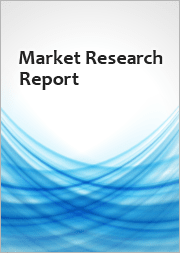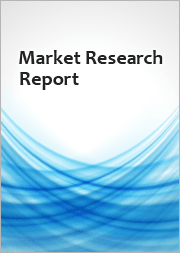
|
시장보고서
상품코드
1802968
AI 제로프로텍터 창제 시장 예측(-2032년) : 치료 영역별, 기술별, 용도별, 최종사용자별, 지역별 세계 분석AI Geroprotector Discovery Market Forecasts to 2032 - Global Analysis By Therapeutic Area, Technology, Application, End User and By Geography |
||||||
Stratistics MRC에 따르면 세계의 AI 제로프로텍터 창제 시장은 2025년에 3억 1,600만 달러에 달하며, 예측 기간 중 CAGR 26.4%로 성장하며, 2032년까지는 16억 2,800만 달러에 달할 것으로 예측됩니다.
AI 노화방지제 개발은 노화와 관련된 과정을 지연, 예방, 역행시킬 수 있는 화합물이나 개입을 식별, 선별, 최적화하기 위해 인공지능과 머신러닝을 적용하는 것을 말합니다. AI는 방대한 생물학적 데이터세트를 분석하여 노화 예방 가능성을 빠르게 예측하고, 의약품 개발의 시행착오를 줄이고, 노화 메커니즘의 정밀한 표적화를 가속화할 수 있습니다.
세계 고령화 인구 증가
세계 노인 인구 증가는 AI 노화방지제 시장의 주요 촉진요인입니다. 이 인구 집단은 노화 관련 질환의 유병률이 증가하면서 노화의 생물학적 메커니즘을 표적으로 하는 혁신적인 치료법에 대한 수요가 증가하고 있습니다. 또한 이러한 인구 통계학적 변화는 의료 시스템에 큰 부담을 주며, 효과적이고 예방적인 노화 방지 솔루션에 대한 긴급한 요구가 발생하고 있습니다. 결과적으로, 고령화 인구 증가는 건강 수명을 연장하고 노화와 관련된 질병에 따른 경제적 부담을 줄일 수 있는 AI 기반 제로프로텍터의 발견에 대한 투자와 연구를 직접적으로 촉진할 것입니다.
기술 인프라를 위한 높은 초기 자본 투자 비용
신약개발을 위한 AI 알고리즘 개발 및 적용을 위해서는 고성능 컴퓨팅(HPC) 시스템, 방대한 데이터 스토리지 솔루션, 전용 소프트웨어에 대한 접근이 필요하며, 이 모든 것은 엄청난 비용이 소요됩니다. 데이터 사이언스자, 계산 생물학자, AI 전문가로 구성된 고도로 숙련된 인력의 채택은 운영 비용을 더욱 증가시킵니다. 이러한 높은 경제적 장벽은 자금력이 있는 기존 기업 시장 진입을 효과적으로 강화하고 중소기업의 진입을 제한하여 혁신을 저해할 수 있습니다.
개인 맞춤형 노화 예방 요법 개발
AI 알고리즘을 활용하여 멀티오믹스 데이터, 생활습관 요인, 임상 기록을 분석하여 환자별 노화 바이오마커를 식별하고, 잠재적인 노화 방지제에 대한 개인의 반응을 예측할 수 있습니다. 이 기능을 통해 효능을 극대화하고 부작용을 최소화하는 고도로 맞춤화된 치료 요법을 쉽게 개발할 수 있습니다. 또한 이러한 개별화 접근법은 임상시험에서 환자 집단을 세분화하여 시험 설계를 강화하고, 새로운 표적 노화 방지 화합물의 승인으로 가는 길을 앞당길 수 있습니다.
블랙박스 문제와 AI 예측의 해석 가능성
AI 시스템이 근본적인 생물학적 근거에 대한 명확하고 해석 가능한 인사이트를 제공하지 않고 잠재적인 노화 방지제 후보를 생성하는 경우, 이는 심각한 장애물이 될 수 있습니다. FDA나 EMA와 같은 규제기관은 의약품의 작용 메커니즘에 대한 종합적인 이해를 통해 허가를 요구하고 있습니다. 이러한 불투명성은 임상의와 연구자들의 신뢰를 떨어뜨리고, 임상 적용을 지연시키며, AI 기반 발견이 주류 치료제 개발 파이프라인에 광범위하게 통합되는 것을 제한할 수 있습니다.
COVID-19의 영향:
COVID-19 팬데믹은 AI 젤로프로텍터 제작 시장에 이중으로 영향을 미쳤습니다. 초기에는 연구 활동과 공급망에 혼란을 일으켜 비 COVID 관련 프로젝트에 일시적인 지연을 초래했습니다. 그러나 이후 신속한 신약 개발 및 재사용에 있으며, 고급 컴퓨팅 접근법의 중요한 역할을 강조함으로써 중요한 촉진제 역할을 했습니다. 이번 팬데믹은 신종 병원균에 대한 노인 인구의 취약성을 부각시켰고, 건강수명 연장에 대한 연구의 중요성을 강화했습니다. 그 결과, AI를 활용한 바이오테크 플랫폼에 대한 투자자들의 관심과 자금이 증가했고, 궁극적으로 시장 성장에 장기적으로 긍정적인 영향을 미쳤습니다.
예측 기간 중 머신러닝(ML) 분야가 가장 큰 성장세를 보일 것으로 예측됩니다.
머신러닝(ML) 부문은 방대한 생물학적 데이터세트에서 복잡하고 비선형적인 패턴을 식별하는 데 있으며, 타의 추종을 불허하는 숙련도를 가지고 있으므로 예측 기간 중 가장 큰 시장 점유율을 차지할 것으로 예측됩니다. ML 알고리즘, 특히 딥러닝 네트워크는 하이스루풋 스크리닝 데이터, 유전체 시퀀싱, 단백질체학 프로파일을 처리하고, 신규 분자의 생식 보호 효과와 독성을 예측하는 데 매우 능숙합니다. 새로운 데이터로부터 지속적으로 학습하고 개선할 수 있는 능력은 타겟 식별, 리드 최적화, 바이오마커 탐색에 필수적인 요소입니다. 이러한 범용성과 다른 신약개발 분야에서 입증된 효과로 인해 ML은 가장 큰 부문으로서의 입지를 굳건히 하고 있습니다.
예측 기간 중 암 분야가 가장 높은 CAGR을 보일 것으로 예측됩니다.
예측 기간 중 노화와 발암이 밀접하게 연관되어 있으므로 암 분야가 가장 높은 성장률을 보일 것으로 예측됩니다. 노화는 암의 주요 위험 요소이며, 세포 손상과 노화의 축적은 종양 형성을 위한 관대한 환경을 조성하기 때문입니다. 대부분의 노화방지제는 전악화된 노화세포를 선택적으로 제거함으로써 강력한 항암작용을 나타냅니다. 고령화 사회의 높은 암 발병률은 기본적인 노화 과정과 암 발생을 동시에 표적으로 삼을 수 있는 AI가 발견한 치료제에 대해 명확한 임상적 경로와 상당한 대응 가능한 시장을 제시하고 있으며, 이는 이 부문의 성장을 가속하고 있습니다.
가장 큰 점유율을 차지하는 지역:
예측 기간 중 북미가 가장 큰 시장 점유율을 차지할 것으로 예상되는데, 이는 주요 제약사 및 생명공학 기업, 세계 최고 수준의 학술연구 기관, 탄탄한 벤처 캐피탈 생태계가 시너지 효과를 발휘하고 있기 때문입니다. 또한 특히 AI 기반 의약품 개발 툴에 점점 더 개방적인 미국 FDA의 지원적인 규제 프레임워크가 시장 개발을 촉진하고 있습니다. 이 지역의 높은 의료 인프라와 높은 의료비는 최첨단 AI 기술 채택을 더욱 용이하게 하고, AI 젤로프로텍터 개발의 선두주자로서의 입지를 확고히 하고 있습니다.
CAGR이 가장 높은 지역:
예측 기간 중 아시아태평양은 가장 높은 CAGR을 보일 것으로 예측됩니다. 이는 생명공학 및 제약 부문의 대폭적인 확장, 헬스케어 분야에서 AI 혁신을 촉진하기 위한 정부 구상 증가, 일본 및 중국과 같은 국가의 급속한 고령화 등에 의해 촉진될 것입니다. 또한 노화 관련 질환의 유병률 증가로 인해 효과적인 노인 치료 개입이 시급히 요구되고 있습니다. AI 스타트업에 대한 투자 증가, 지역 및 세계 기업 간의 전략적 파트너십 구축은 이 지역 시장의 가속적 확장을 촉진하는 주요 요인입니다.
무료 커스터마이징 서비스
이 보고서를 구독하는 고객은 다음과 같은 무료 맞춤화 옵션 중 하나를 이용할 수 있습니다.
- 기업소개
- 추가 시장 기업의 종합적인 프로파일링(최대 3사)
- 주요 기업의 SWOT 분석(최대 3사)
- 지역 세분화
- 고객의 관심에 따른 주요 국가별 시장 추정, 예측, CAGR(주: 타당성 확인에 따라 다름)
- 경쟁사 벤치마킹
- 제품 포트폴리오, 지역적 입지, 전략적 제휴를 기반으로 한 주요 기업 벤치마킹
목차
제1장 개요
제2장 서문
- 개요
- 이해관계자
- 조사 범위
- 조사 방법
- 데이터 마이닝
- 데이터 분석
- 데이터 검증
- 조사 어프로치
- 조사 자료
- 1차 조사 자료
- 2차 조사 자료
- 전제조건
제3장 시장 동향 분석
- 촉진요인
- 억제요인
- 기회
- 위협
- 기술 분석
- 용도 분석
- 최종사용자 분석
- 신흥 시장
- COVID-19의 영향
제4장 Porter's Five Forces 분석
- 공급 기업의 교섭력
- 바이어의 교섭력
- 대체품의 위협
- 신규 진출업체의 위협
- 경쟁 기업 간 경쟁 관계
제5장 세계의 AI 제로프로텍터 창제 시장 : 치료 영역별
- 고령자와 노화에 수반하는 허약성
- 심혈관질환
- 신경변성질환
- 대사성 질환
- 종양학
- 기타 노화 관련 치료 영역
제6장 세계의 AI 제로프로텍터 창제 시장 : 기술별
- 기계학습(ML)
- 지도 학습
- 비지도 학습
- 강화 학습
- 딥러닝(DL)
- 생성형 AI
- 자연언어처리(NLP)
- 컴퓨터 비전
- 기타 생성형 AI
- 그래프 기반 AI와 지식 그래프
제7장 세계의 AI 제로프로텍터 창제 시장 : 용도별
- 타겟 식별과 검증
- 리드 제너레이션과 최적화
- 약물 재사용
- 바이오마커 발견과 노화 시계
- 독성과 안전성 예측
- 전임상 시험
제8장 세계의 AI 제로프로텍터 창제 시장 : 최종사용자별
- 제약·바이오테크놀러지 기업
- 계약 조사기관(CRO)
- 학술·연구기관
- 장수 중심 스타트업과 클리닉
제9장 세계의 AI 제로프로텍터 창제 시장 : 지역별
- 북미
- 미국
- 캐나다
- 멕시코
- 유럽
- 독일
- 영국
- 이탈리아
- 프랑스
- 스페인
- 기타 유럽
- 아시아태평양
- 일본
- 중국
- 인도
- 호주
- 뉴질랜드
- 한국
- 기타 아시아태평양
- 남미
- 아르헨티나
- 브라질
- 칠레
- 기타 남미
- 중동 및 아프리카
- 사우디아라비아
- 아랍에미리트
- 카타르
- 남아프리카공화국
- 기타 중동 및 아프리카
제10장 주요 발전
- 계약, 파트너십, 협업, 조인트 벤처
- 인수와 합병
- 신제품 발매
- 사업 확대
- 기타 주요 전략
제11장 기업 프로파일링
- Insilico Medicine
- Deep Longevity
- Juvenescence
- BioAge Labs
- Calico
- Recursion Pharmaceuticals
- BenevolentAI
- Xaira Therapeutics
- Arda Therapeutics
- InVivo Biosystems
- Gero
- Helix
- Valo Health
- Exscientia
- Atomwise
- BERG
According to Stratistics MRC, the Global AI Geroprotector Discovery Market is accounted for $316 million in 2025 and is expected to reach $1628 million by 2032 growing at a CAGR of 26.4% during the forecast period. AI Geroprotector Discovery refers to the application of artificial intelligence and machine learning to identify, screen, and optimize compounds or interventions that can slow, prevent, or reverse aging-related processes. By analyzing vast biological datasets, AI enables faster prediction of geroprotective potential, reduces trial-and-error in drug development, and accelerates precision targeting of aging mechanisms.
Market Dynamics:
Driver:
Rising global aging population
The escalating global geriatric demographic is a primary driver for the AI geroprotector discovery market. This population cohort exhibits a heightened prevalence of age-related disorders, thereby amplifying the demand for innovative therapeutic interventions that target the biological mechanisms of aging. Additionally, this demographic shift imposes a significant strain on healthcare systems, creating an urgent need for efficacious and preventative anti-aging solutions. Consequently, the rising aging population directly fuels investment and research into AI-driven discovery of geroprotectors, which promise to extend healthspan and mitigate the economic burden associated with age-related morbidity.
Restraint:
High initial capital investment for technology infrastructure
The development and application of AI algorithms for drug discovery necessitate access to high-performance computing (HPC) systems, vast data storage solutions, and specialized software, all of which entail exorbitant costs. The recruitment of a highly skilled workforce comprising data scientists, computational biologists, and AI specialists further escalates operational expenditures. This high financial barrier effectively consolidates market presence among well-funded established players and constrains the participation of small and medium-sized enterprises (SMEs), potentially stifling innovation.
Opportunity:
Development of personalized geroprotective regimens
AI algorithms can be leveraged to analyze multi-omics data, lifestyle factors, and clinical histories to identify patient-specific aging biomarkers and predict individual responses to potential geroprotectors. This capability facilitates the development of highly tailored therapeutic regimens that maximize efficacy and minimize adverse effects. Furthermore, this personalized approach allows for the stratification of patient populations in clinical trials, enhancing trial design and accelerating the path to regulatory approval for novel, targeted anti-aging compounds.
Threat:
The "Black Box" problem and interpretability of AI predictions
When AI systems generate a potential geroprotector candidate without providing clear, interpretable insights into the underlying biological rationale, it creates significant hurdles. Regulatory bodies like the FDA and EMA require a comprehensive understanding of a drug's mechanism of action for approval. This opacity can erode trust among clinicians and researchers, potentially delaying clinical translation and limiting the widespread integration of AI-derived discoveries into mainstream therapeutic development pipelines.
Covid-19 Impact:
The COVID-19 pandemic had a dual impact on the AI geroprotector discovery market. Initially, it disrupted research activities and supply chains, causing temporary delays in non-COVID-related projects. However, it subsequently acted as a significant accelerator by underscoring the critical role of advanced computational approaches in rapid drug discovery and repurposing. The pandemic highlighted the vulnerabilities of the elderly population to novel pathogens, thereby reinforcing the importance of research into healthspan extension. This led to increased investor interest and funding directed towards AI-powered biotechnology platforms, ultimately netting a positive long-term effect on market growth.
The machine learning (ML) segment is expected to be the largest during the forecast period
The machine learning (ML) segment is expected to account for the largest market share during the forecast period due to its unparalleled proficiency in identifying complex, non-linear patterns within vast biological datasets. ML algorithms, particularly deep learning networks, are exceptionally adept at processing high-throughput screening data, genomic sequences, and proteomic profiles to predict the geroprotective efficacy and toxicity of novel molecules. Their ability to continuously learn and improve from new data makes them indispensable for target identification, lead optimization, and biomarker discovery. This versatility and proven effectiveness in other drug discovery domains solidify ML's position as the largest segment.
The oncology segment is expected to have the highest CAGR during the forecast period
Over the forecast period, the oncology segment is predicted to witness the highest growth rate, driven by the profound intersection between aging and carcinogenesis. Aging is a primary risk factor for cancer, as the accumulation of cellular damage and senescence creates a permissive environment for tumorigenesis. Many geroprotectors, such as senolytics, exhibit strong anti-cancer potential by selectively eliminating premalignant senescent cells. The high incidence of cancer within the aging population presents a clear clinical pathway and a substantial addressable market for AI-discovered therapies that can simultaneously target fundamental aging processes and oncogenesis, which is fueling the segment growth.
Region with largest share:
During the forecast period, the North America region is expected to hold the largest market share, attributed to its synergistic confluence of leading pharmaceutical and biotechnology companies, world-class academic research institutions, and a robust venture capital ecosystem. Moreover, the presence of a supportive regulatory framework, particularly from the U.S. FDA, which is increasingly open to AI-derived drug development tools, facilitates market growth. The region's advanced healthcare infrastructure and high healthcare expenditure further enable the adoption of cutting-edge AI technologies, consolidating its position as the frontrunner in the AI geroprotector discovery landscape.
Region with highest CAGR:
Over the forecast period, the Asia Pacific region is anticipated to exhibit the highest CAGR, fueled by a significant expansion in its biotechnology and pharmaceutical sectors, increasing government initiatives aimed at fostering AI innovation in healthcare, and a rapidly aging population in countries like Japan and China. Additionally, the rising prevalence of age-related diseases is creating an urgent need for effective gerotherapeutic interventions. The growing investment in AI startups and the establishment of strategic partnerships between regional and global players are key factors catalyzing the market's accelerated expansion in this region.
Key players in the market
Some of the key players in AI Geroprotector Discovery Market include Insilico Medicine, Deep Longevity, Juvenescence, BioAge Labs, Calico, Recursion Pharmaceuticals, BenevolentAI, Xaira Therapeutics, Arda Therapeutics, InVivo Biosystems, Gero, Helix, Valo Health, Exscientia, Atomwise and BERG.
Key Developments:
In June 2025, BioAge has launched an initiative to analyze over 17,000 samples from the HUNT Biobank in Norway to accelerate discovery of drug targets targeting the biology of aging. This molecular profiling is expected to expand insights and identify novel therapeutic targets for aging-related diseases.
In April 2024, AI-based drug developer Xaira Therapeutics has been launched with more than $1 billion in capital and a self-described ambitious commitment to transform drug discovery and development by creating new and more effective treatments faster.
Therapeutic Areas Covered:
- Cardiovascular Diseases
- Neurodegenerative Diseases
- Metabolic Diseases
- Oncology
- Other Age-related Therapeutic Areas
Technologies Covered:
- Machine Learning (ML)
- Generative AI
- Graph-Based AI & Knowledge Graphs
Applications Covered:
- Target Identification & Validation
- Lead Generation & Optimization
- Drug Repurposing
- Biomarker Discovery & Aging Clocks
- Toxicity & Safety Prediction
- Preclinical Testing
End Users Covered:
- Pharmaceutical and Biotechnology Companies
- Contract Research Organizations (CROs)
- Academic and Research Institutions
- Longevity-focused Startups & Clinics
Regions Covered:
- North America
- US
- Canada
- Mexico
- Europe
- Germany
- UK
- Italy
- France
- Spain
- Rest of Europe
- Asia Pacific
- Japan
- China
- India
- Australia
- New Zealand
- South Korea
- Rest of Asia Pacific
- South America
- Argentina
- Brazil
- Chile
- Rest of South America
- Middle East & Africa
- Saudi Arabia
- UAE
- Qatar
- South Africa
- Rest of Middle East & Africa
What our report offers:
- Market share assessments for the regional and country-level segments
- Strategic recommendations for the new entrants
- Covers Market data for the years 2024, 2025, 2026, 2028, and 2032
- Market Trends (Drivers, Constraints, Opportunities, Threats, Challenges, Investment Opportunities, and recommendations)
- Strategic recommendations in key business segments based on the market estimations
- Competitive landscaping mapping the key common trends
- Company profiling with detailed strategies, financials, and recent developments
- Supply chain trends mapping the latest technological advancements
Free Customization Offerings:
All the customers of this report will be entitled to receive one of the following free customization options:
- Company Profiling
- Comprehensive profiling of additional market players (up to 3)
- SWOT Analysis of key players (up to 3)
- Regional Segmentation
- Market estimations, Forecasts and CAGR of any prominent country as per the client's interest (Note: Depends on feasibility check)
- Competitive Benchmarking
- Benchmarking of key players based on product portfolio, geographical presence, and strategic alliances
Table of Contents
1 Executive Summary
2 Preface
- 2.1 Abstract
- 2.2 Stake Holders
- 2.3 Research Scope
- 2.4 Research Methodology
- 2.4.1 Data Mining
- 2.4.2 Data Analysis
- 2.4.3 Data Validation
- 2.4.4 Research Approach
- 2.5 Research Sources
- 2.5.1 Primary Research Sources
- 2.5.2 Secondary Research Sources
- 2.5.3 Assumptions
3 Market Trend Analysis
- 3.1 Introduction
- 3.2 Drivers
- 3.3 Restraints
- 3.4 Opportunities
- 3.5 Threats
- 3.6 Technology Analysis
- 3.7 Application Analysis
- 3.8 End User Analysis
- 3.9 Emerging Markets
- 3.10 Impact of Covid-19
4 Porters Five Force Analysis
- 4.1 Bargaining power of suppliers
- 4.2 Bargaining power of buyers
- 4.3 Threat of substitutes
- 4.4 Threat of new entrants
- 4.5 Competitive rivalry
5 Global AI Geroprotector Discovery Market, By Therapeutic Area
- 5.1 Introduction
- 5.2 Geriatric Diseases & Age-related Frailty
- 5.3 Cardiovascular Diseases
- 5.4 Neurodegenerative Diseases
- 5.5 Metabolic Diseases
- 5.6 Oncology
- 5.7 Other Age-related Therapeutic Areas
6 Global AI Geroprotector Discovery Market, By Technology
- 6.1 Introduction
- 6.2 Machine Learning (ML)
- 6.2.1 Supervised Learning
- 6.2.2 Unsupervised Learning
- 6.2.3 Reinforcement Learning
- 6.2.4 Deep Learning (DL)
- 6.3 Generative AI
- 6.3.1 Natural Language Processing (NLP)
- 6.3.2 Computer Vision
- 6.3.3 Other Generative AI
- 6.4 Graph-Based AI & Knowledge Graphs
7 Global AI Geroprotector Discovery Market, By Application
- 7.1 Introduction
- 7.2 Target Identification & Validation
- 7.3 Lead Generation & Optimization
- 7.4 Drug Repurposing
- 7.5 Biomarker Discovery & Aging Clocks
- 7.6 Toxicity & Safety Prediction
- 7.7 Preclinical Testing
8 Global AI Geroprotector Discovery Market, By End User
- 8.1 Introduction
- 8.2 Pharmaceutical and Biotechnology Companies
- 8.3 Contract Research Organizations (CROs)
- 8.4 Academic and Research Institutions
- 8.5 Longevity-focused Startups & Clinics
9 Global AI Geroprotector Discovery Market, By Geography
- 9.1 Introduction
- 9.2 North America
- 9.2.1 US
- 9.2.2 Canada
- 9.2.3 Mexico
- 9.3 Europe
- 9.3.1 Germany
- 9.3.2 UK
- 9.3.3 Italy
- 9.3.4 France
- 9.3.5 Spain
- 9.3.6 Rest of Europe
- 9.4 Asia Pacific
- 9.4.1 Japan
- 9.4.2 China
- 9.4.3 India
- 9.4.4 Australia
- 9.4.5 New Zealand
- 9.4.6 South Korea
- 9.4.7 Rest of Asia Pacific
- 9.5 South America
- 9.5.1 Argentina
- 9.5.2 Brazil
- 9.5.3 Chile
- 9.5.4 Rest of South America
- 9.6 Middle East & Africa
- 9.6.1 Saudi Arabia
- 9.6.2 UAE
- 9.6.3 Qatar
- 9.6.4 South Africa
- 9.6.5 Rest of Middle East & Africa
10 Key Developments
- 10.1 Agreements, Partnerships, Collaborations and Joint Ventures
- 10.2 Acquisitions & Mergers
- 10.3 New Product Launch
- 10.4 Expansions
- 10.5 Other Key Strategies
11 Company Profiling
- 11.1 Insilico Medicine
- 11.2 Deep Longevity
- 11.3 Juvenescence
- 11.4 BioAge Labs
- 11.5 Calico
- 11.6 Recursion Pharmaceuticals
- 11.7 BenevolentAI
- 11.8 Xaira Therapeutics
- 11.9 Arda Therapeutics
- 11.10 InVivo Biosystems
- 11.11 Gero
- 11.12 Helix
- 11.13 Valo Health
- 11.14 Exscientia
- 11.15 Atomwise
- 11.16 BERG



















